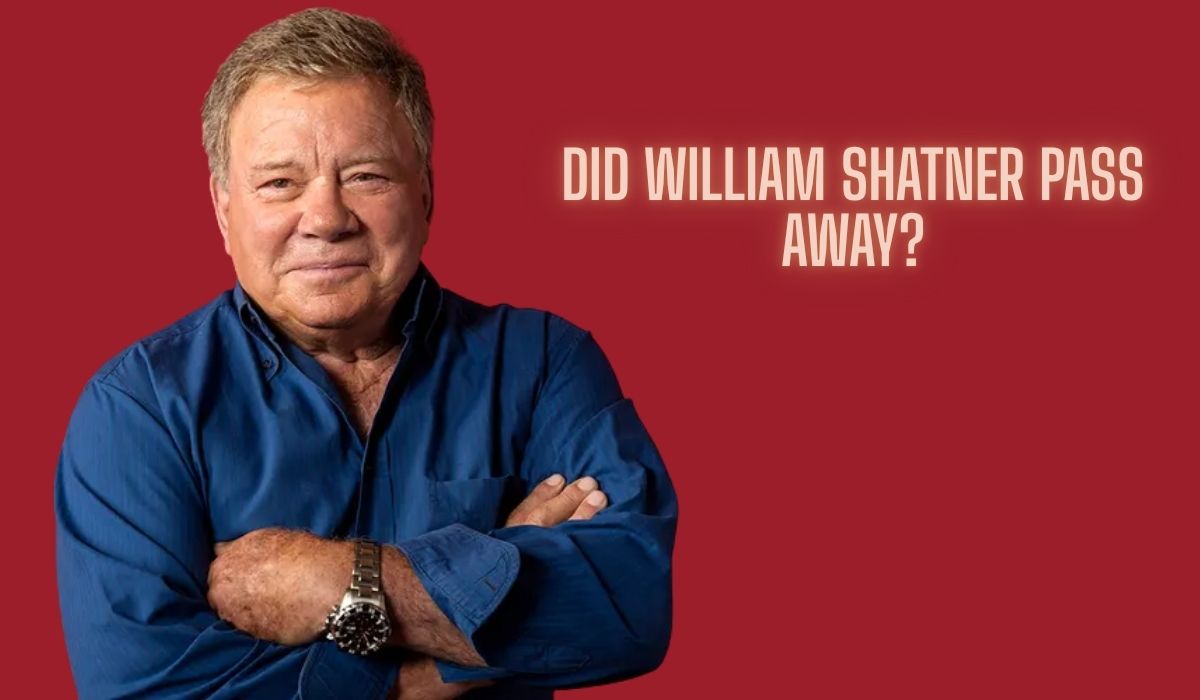It’s a strange phenomenon of the internet age: a beloved celebrity’s name trends on social media, and within minutes, panic spreads. Did something happen? Are they gone? Recently, that question swirled around William Shatner, the iconic actor best known as Captain Kirk in Star Trek. At 93, Shatner remains one of the most recognizable figures in pop culture, so it’s no surprise that any whisper about his health sends fans into a frenzy. But as of this writing, no, William Shatner has not passed away.
Yet the fact that this rumor even surfaced says a lot about how we process information (and misinformation) in the 21st century. Shatner, ever the active presence on social media, has had to debunk death hoaxes before. In 2020, a fake news story claimed he had died, prompting him to tweet, “I’m not dead.” Classic Shatner—direct, a little wry, and very much alive.
Why Do These Rumors Persist?
Celebrity death hoaxes aren’t new, but the speed at which they spread today is staggering. A few factors feed into this:
- The Viral Nature of Social Media – A single tweet or Facebook post can spiral out of control before fact-checkers catch up. Algorithms prioritize engagement, meaning shocking or emotional content (like a celebrity’s death) gets amplified faster than a mundane correction.
- The Nostalgia Factor – Shatner belongs to a generation of stars whose legacies feel almost timeless. For many, Star Trek isn’t just a show; it’s a cultural touchstone. The idea of losing someone like him triggers a collective anxiety, making people more likely to react before verifying.
- Clickbait Culture – Some websites thrive on misinformation. A sensational headline like “William Shatner Dead at 93” guarantees clicks, even if the story is baseless. By the time the retractions come, the damage is done.
Shatner’s Relationship with Mortality
Ironically, Shatner has been unusually open about aging and death. His 2017 documentary You Can Call Me Bill explored his thoughts on legacy, while his 2021 trip to space with Blue Origin forced him to confront his mortality in a very public way. After returning from the edge of space, he admitted to weeping—not from joy, but from the overwhelming realization of Earth’s fragility.
This kind of introspection makes the death rumors feel even more jarring. Here’s a man who has spent recent years reflecting deeply on life’s impermanence, only to have strangers on the internet repeatedly declare his demise prematurely.
The Danger of Misinformation
Beyond being a nuisance, these hoaxes have real consequences. Family members and friends of celebrities often have to deal with an outpouring of grief and condolences before they can even process the news themselves. In Shatner’s case, his daughters, Leslie, Lisabeth, and Melanie, have had to navigate these false alarms more than once.
There’s also a broader cultural cost. When fake news erodes trust, even legitimate reports get met with skepticism. Remember the confusion when Betty White’s passing was announced in late 2021? Some fans initially dismissed it as another hoax because of how often older stars are falsely declared dead.
How to Spot a Death Hoax
If you see a trending “RIP William Shatner” post, here’s how to check its validity:
- Look for Reliable Sources – Has a major outlet like the AP, BBC, or The New York Times reported it? If not, be skeptical.
- Check the Celebrity’s Social Media – Shatner is famously active on Twitter (now X). If he’s posting, he’s probably fine.
- Reverse Image Search – Many hoaxes recycle old photos or use generic images. A quick search can reveal if the “proof” is recycled.
Shatner’s Legacy—Very Much Alive
For now, Shatner continues to work, tweet, and occasionally make headlines—whether for his thoughts on Star Trek, his views on AI, or his latest projects. His career spans seven decades, and he shows no signs of fading into the background.
But the fact that these rumors keep resurfacing is a reminder of something more profound: our discomfort with losing the icons who shaped our cultural landscape. Shatner, like many stars of his era, represents an era of television and film that feels increasingly distant. When we see his name trending, part of the fear isn’t just about him—it’s about confronting the passage of time itself.
FAQs About Did William Shatner Pass Away?
1. Is William Shatner dead?
No, as of the latest updates, William Shatner is alive. The actor, best known for his role as Captain Kirk in Star Trek, has been the subject of multiple death hoaxes over the years, all of which have been false.
2. Why do people keep saying William Shatner died?
Celebrity death hoaxes are, unfortunately, common, especially for older, high-profile figures like Shatner. These rumors often start on social media or clickbait websites seeking attention. Shatner himself has had to debunk them multiple times.
3. How can I verify if a celebrity death rumor is true?
Always check:
- Official sources (reputable news outlets like AP, BBC, or CNN).
- The celebrity’s verified social media accounts (Shatner is active on X/Twitter).
- Fact-checking sites (Snopes often debunks viral hoaxes).
Avoid relying on unverified tweets, memes, or obscure blogs.
4. Has William Shatner responded to death hoaxes before?
Yes. In 2020, after a fake story spread, he tweeted, “I’m not dead.” He has a history of humorously dismissing false reports about his death.
5. How old is William Shatner?
As of 2024, Shatner is 93 years old (born March 22, 1931). Despite his age, he remains active in public life, attending events, giving interviews, and working on projects.
6. What is William Shatner doing now?
Shatner continues to make appearances, write books, and engage with fans. In recent years, he made headlines for his spaceflight with Blue Origin (2021) and his reflections on mortality in documentaries and interviews.
7. Why do people spread fake death rumors?
Reasons include:
- Clickbait (websites profit from viral traffic).
- Social media algorithms favor shocking content.
- Trolls are looking to confuse.
- Nostalgia and anxiety about aging celebrities.
8. What should I do if I see a death hoax about Shatner (or any celebrity)?
- Please don’t share it without confirmation.
- Report false posts on social media.
- Check reliable sources before reacting.
9. Has any other Star Trek actor been targeted by death hoaxes?
Yes. Leonard Nimoy (Spock) and Nichelle Nichols (Uhura) faced similar rumors before their actual passings. Unfortunately, this makes fans extra wary when new hoaxes circulate.
10. Where can I find official updates about William Shatner?
Follow his verified accounts (@WilliamShatner on X/Twitter) or check trusted entertainment news sources.

